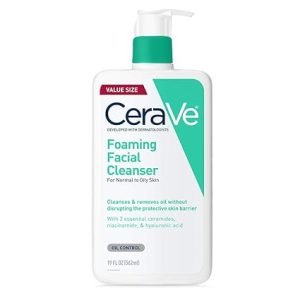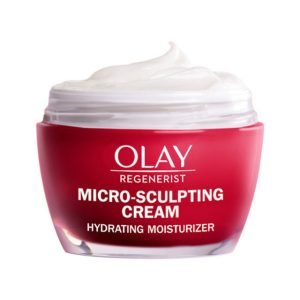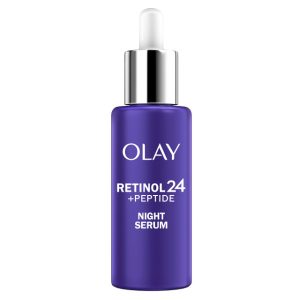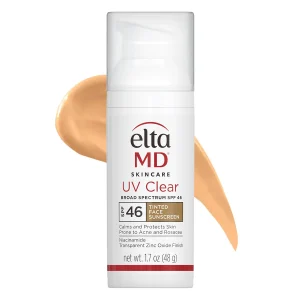When it comes to skincare, the right knowledge, habits, and accuracy are essential in skin transformation. While taking care of your skin requires a lot of work, you need to agree with me that even the most devoted routine can go wrong.
Many people unknowingly make mistakes that lead to dullness, breakouts, premature aging, irritation, and more. Whether you’re a skincare beginner or someone with a cabinet full of products, understanding these common missteps can help you get the most from your efforts.
In this guide, we’ve uncovered 10 of the most frequent skincare mistakes people make, explaining why they happen, and science-backed ways to fix them.
Keep Reading!
Top 10 Skincare Mistakes to Avoid
1. Over-Cleansing or Under-Cleansing the Skin
While cleansing is important if you want to keep healthy skin, you also need to understand that overdoing or underdoing it can strip your skin, affecting the skin’s natural barrier. Over-cleansing can cause dryness, sensitivity, and even more oil production, while under-cleansing can promote clogged pores and impurities.
How to fix it: You’re expected to only cleanse your face twice a day (morning and night) using a gentle, pH-balanced cleanser suited for your skin type. For dry skin, pick a hydrating cleanser, while oily skin should consider oil-free formulas.
2. Skipping Sunscreen
Many people believe that sunscreen is only applicable when it’s sunny or when they’re going outdoors. But only a few know that UV rays can penetrate clouds and windows, contributing to premature aging, sunspots, and increased risk of skin cancer.
How to fix it: Apply a broad-spectrum SPF 30 or higher every morning, even on cloudy or indoor days. You can also reapply it every 2-3 hours if you’re likely sweating indoors or you’re outdoors. In short, sunscreen is your best anti-aging product.
3. Over-Exfoliating (or Not Enough)
While exfoliation is essential to remove dead cells, prevent blocked pores, and encourage a light color, overdoing it can cause a lot of damage, including redness, sensitivity, dryness, and breakouts, among others. So, what is expected of you is to balance the use of exfoliation, not to over-use or under-use it.
How to fix it: You can exfoliate 1-3 times a week, depending on your skin type. Use chemical exfoliants like AHAs (glycolic acid) and BHAs (salicylic acid) instead of harsh scrubs for smoother, brighter skin.
4. Sleeping with Makeup On
Falling asleep without removing makeup after a long day is another common mistake most people make. While you might be tired at the end of the day, you must understand that not removing makeup can trap dirt and bacteria, which might lead to clogged pores and accelerate aging.
How to fix it: No matter how tired you are, make sure you remove your makeup before bed. You can consider using micellar water or cleansing balms, as both make makeup removal quick and gentle.
5. Using Too Many Products at Once
Overloading your skin with a lot of skin products, including serums, acids, and creams, with the hopes of faster results, can irritate and make it difficult to identify which product works or doesn’t.
How to fix it: Just simplify your routine to essentials like cleanser, moisturizer, and sunscreen. Add one active ingredient at a time (like retinol or vitamin C) and give it 2-4 weeks to evaluate the results.
6. Touching Your Face Often
If you have the habit of constantly touching your face, you might end up transferring dirt, oil, and bacteria to your skin, which can contribute to breakouts and clog pores.
How to fix it: Avoid touching your face often. If you must touch your face, make sure your hands are clean and use a tissue or a clean cloth when applying skincare products.
7. Picking or Popping Pimples
This is one of the most common habits and worst skincare mistakes most people fall victim to. Touching, squeezing, and popping acne spots can spread bacteria, delay healing, and cause scarring or hyperpigmentation.
How to fix it: Instead of popping or squeezing pimples, you can apply a spot treatment with benzoyl peroxide or salicylic acid, and let your skin heal naturally. However, if you have persistent acne, see a dermatologist.
8. Neglecting to Moisturize Oily Skin
Many people with oily skin believe that skipping moisturizer because their skin feels oily will reduce their skin’s oil, not knowing that depriving their skin of moisture can trigger more oil production, making the problem worse.
How to fix it: Use a lightweight, oil-free moisturizer with ingredients like hyaluronic acid or niacinamide to balance hydration without clogging pores.
9. Applying Products in the Wrong Order
No matter how good the products you’re using are, applying them in the wrong order will surely hinder their effectiveness and the absorption of active ingredients.
How to fix it: This is the sequence to follow: cleanser, toner, serum, moisturizer, and sunscreen. You must always remember that lighter products like serum must be applied before thicker products like creams.
10. Expecting Instant Results
Giving up on products too quickly or constantly switching routines can affect the effectiveness of skincare products and sometimes cause more harm than good. Most skincare ingredients take time to show visible improvements. Therefore, changing them can hinder their unfinished work, and introducing a new product can affect the skin.
How to fix it: Be consistent and patient. You can track your progress with photos or videos instead of mirror checks every day. Remember, building a perfect skincare routine requires a long-term investment, not an overnight miracle.
Science-Backed Skincare Products Worth Considering
Different research has shown that certain skincare ingredients consistently deliver visible and long-term results when used correctly. Below are some of them:
- Gentle Cleansers: Dermatologists recommend sulfate-free cleansers that maintain the skin barrier. Examples include CeraVe Hydrating Facial Cleanser, La Roche-Posay Toleriane Hydrating Cleanser.
- Vitamin C Serums: Clinical studies proved that Vitamin C Serums are good for brightening and protecting skin against environmental damage. Examples are La Roche-Posay Pure Vitamin C10 Serum, The Ordinary Ascorbic Acid 8% + Alpha
- Niacinamide Moisturizers: These are known for strengthening the skin barrier, balancing oil, and reducing redness. Examples are Olay Regenerist Micro-Sculpting Cream, The Ordinary Niacinamide 10% + Zinc 1%.
- Retinol Treatments: This is effective in reducing fine lines, wrinkles, and hyperpigmentation. Examples are CeraVe Resurfacing Retinol Serum, Olay Retinol 24 Night Serum.
- Broad-Spectrum Sunscreens: Several Dermatologists agree that this is the single most important anti-aging product. Examples are EltaMD UV Clear Broad-Spectrum SPF 46, Neutrogena Ultra Sheer Dry-Touch SPF 55.
Conclusion
Skincare is about balance — not perfection. Even small changes in your routine can make a noticeable difference when done consistently. Focus on listening to your skin, using the right products for your type, and protecting it daily.
However, if you need guidance on how to take care of your skin, you can reach out to Nooora Beauty Concierge, an on-demand beauty and wellness platform that can guarantee a perfect skin clean-up for you and ensure you get the desired results.

















